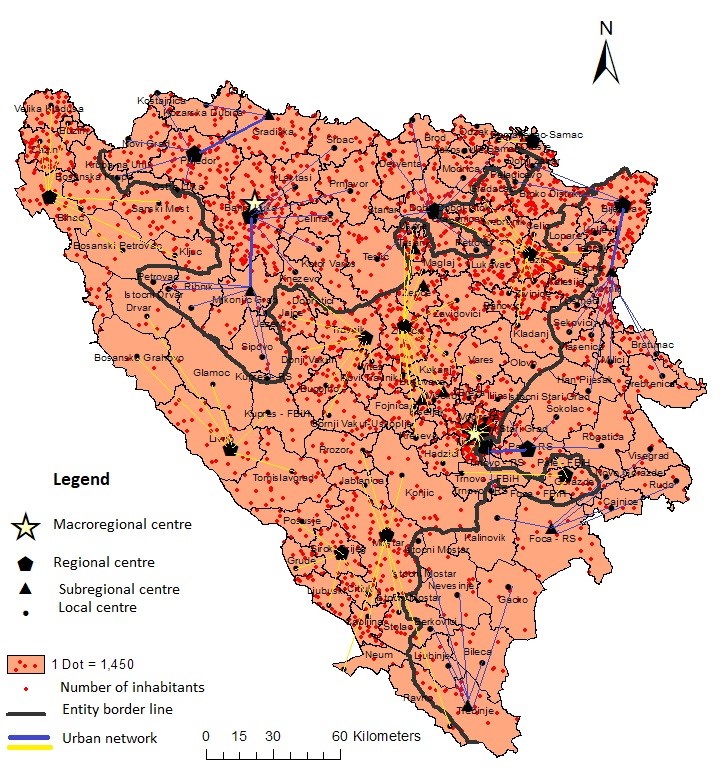Complexity of Reconciliation of Multiple Regional Identities and Regional Policies
Example of Bosnia and Herzegovina
Abstract
Bosnia and Herzegovina (BiH) today shows marked inefficiency, which in economic terms is seen as an example of extremely unfavourable macroeconomic indicators. It is the most visible in the domain of the unemployment rate according to which this is the first country in Europe. This economic reality is particularly reflected in the elements of the spatial structure (population and settlements) and which flows into the overall social relations that are recognized as non-perspective countries / regions. This is one of the reasons why BiH is the first country in the world by the percentage of inhabitants who do not live in the country where they were born. The complexity of relations in BiH reflects the complexity of regional identities, which are recognized as the formula 1 + 2 + 3 + 4 (one state + two entities + three nations + four different religions). In addition to religious diversity, regional identities are characterized by physiognomic, cultural, economic and legal specificities of the existing two entities, which can be better reconciled and harmonized through a more efficient regional policy.


This work is licensed under a Creative Commons Attribution 4.0 International License.
Copyright for this article is retained by the author(s), with first publication rights granted to the journal.
This is an open-access article distributed under the terms and conditions of the Creative Commons Attribution license (http://creativecommons.org/licenses/by/4.0/).









1.png)














